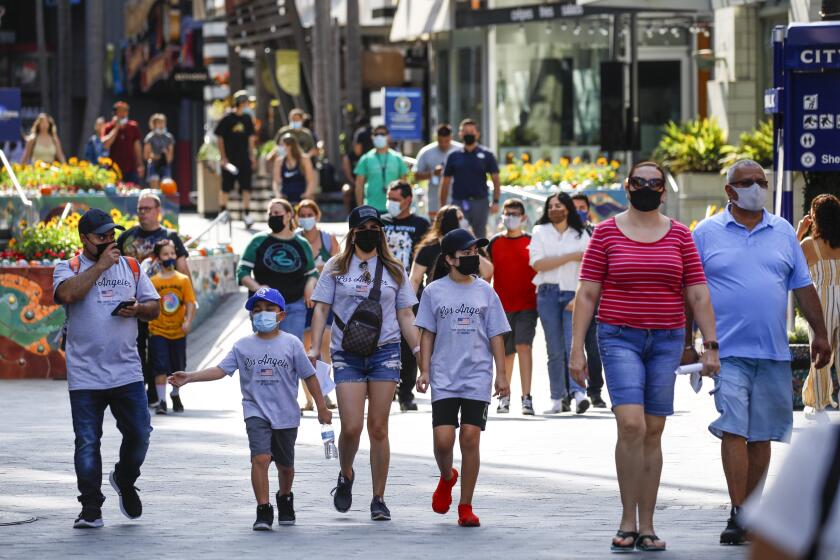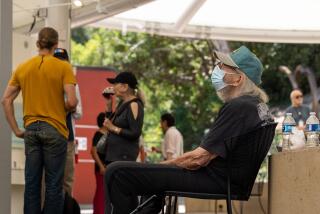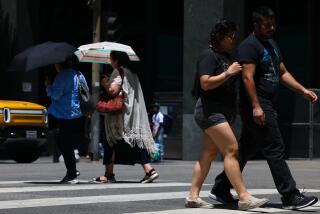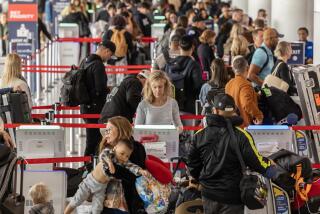Delta variant dominates California coronavirus cases; rapid spread alarms officials
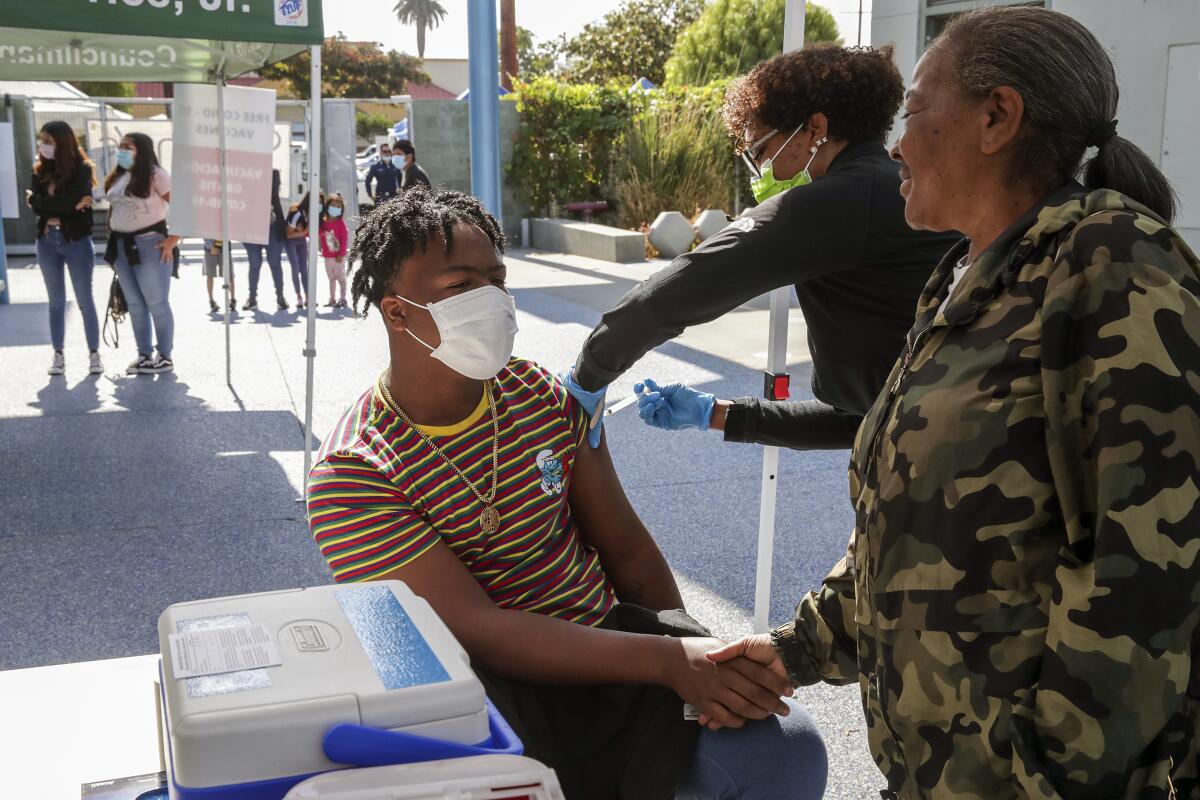
The rise of the highly contagious Delta variant is causing increases in new coronavirus cases and hospitalizations in California and prompting concern about new spread of the illness in unvaccinated communities.
While those who have been fully vaccinated against COVID-19 are believed to have high levels of protection against the variant, more people who have not been vaccinated are getting sick, data show.
Here is a breakdown of what we know and where the Delta variant might be going in California and beyond.
The spread
- Nationwide: The Delta variant is spreading rapidly in the U.S. The director of the U.S. Centers for Disease Control and Prevention, Dr. Rochelle Walensky, said recent data show that 25% of analyzed coronavirus cases nationwide are of the Delta variant. In some areas of the country, nearly half the analyzed cases are the Delta variant. By contrast, from May 9-22, the Delta variant made up less than 3% of analyzed coronavirus samples nationwide.
- California: New data released by the California Department of Public Health show 35.6% of coronavirus variants analyzed in June have been identified as the Delta variant, which was first identified in India. That’s a dramatic increase from May, when it accounted for just 5.6% of analyzed coronavirus cases in California and was the state’s fourth most identified variant. Delta is now more widespread than the previous dominant strain, Alpha, which was first identified in the United Kingdom and accounted for 34.3% of analyzed coronavirus cases in June. Alpha was the state’s most dominant strain in April and May, outpacing the California variant, now known as Epsilon, which currently occurs in less than 2% of analyzed cases. Delta is now the dominant variant in California.
- L.A. County: Los Angeles County started seeing upticks of Delta cases in early April. In May, the county had fewer than 20 identified Delta cases a week, but by June, there were 60 to 80. For the week that ended June 19, Delta made up nearly 50% of all cases analyzed in L.A. County; four weeks earlier, it accounted for less than 5%. Delta has been identified in 245 coronavirus cases so far in L.A. County, with early clusters identified in Palmdale and Lancaster. Fourteen cases of the Delta variant occurred among residents of a single household.
- Hospitalizations: The number of Californians hospitalized for COVID-19 fell to 915 on June 12 — the lowest it has been since the state began tracking cases. But since then, hospitalizations have been creeping back up. On Saturday, there were 1,097 COVID-19 patients in hospitals statewide, a 20% increase. COVID-19 hospitalizations in L.A. County hit a record low of 212 on June 12. But Saturday, there were 284 hospitalized patients — a 34% increase, though far below the peak of 8,098 hospitalized patients during the worst days of the pandemic.
- Deaths: L.A. County’s data show that if you’re fully vaccinated, you’re at very little risk of becoming seriously ill or dying. Countywide, 99.8% of people who have died from COVID-19 since December were not vaccinated.
- Community spread: Coronavirus case and hospitalization rates are worsening for Los Angeles County’s Black residents. Between mid-May and mid-June, the COVID-19 case rate over a two-week-period rose 18% among Black residents but declined 4% for Latino residents, 6% for white residents and 25% for Asian American residents. And the hospitalization rate for Black residents — who are less likely than other racial and ethnic groups to be vaccinated — grew by 11% while declining for Asian American residents by 12%, Latino residents by 29% and white residents by 37%.
In Los Angeles County, a sudden rise in coronavirus cases and hospitalizations has put a damper on the holiday spirit.
Vaccinations
- In Los Angeles County, 51% of the population is fully vaccinated. But some 4 million of the county’s 10 million residents have not had a single dose of vaccine. That includes 1.3 million children under 12, who are not yet eligible for the shots.
- San Francisco has 68% of its population fully vaccinated, and Santa Clara — Northern California’s most populous county — stands at 66%.
Mask wearing
- Hoping to slow the spread of the Delta variant, Los Angeles County took an unusual step. In recommending that all residents wear masks in public indoor spaces — regardless of whether they’ve been vaccinated for COVID-19 — the nation’s most-populous county is an outlier. “We have enough risk and enough unvaccinated people for Delta to pose a threat to our recovery. And masking up now could help prevent a resurgence in transmission,” L.A. County Public Health Director Barbara Ferrer said last week.
- Neither state nor federal health officials have taken that step. Dr. Anthony Fauci, the U.S. government’s top infectious-diseases expert, maintained last week that COVID-19 vaccines are highly effective against all known variants, including Delta. “If you are vaccinated, you have a high degree of protection — so you need not wear a mask, either indoor or outdoor,” Fauci said, while adding that local health authorities are free to offer different recommendations or mandates than federal guidance.
- Illinois Gov. J.B. Pritzker recently told reporters: “From my own perspective, if you’re going into a heavily crowded area, you don’t know if somebody is not vaccinated, and so you should just bring your mask with you and keep safe.”
More to Read
Sign up for Essential California
The most important California stories and recommendations in your inbox every morning.
You may occasionally receive promotional content from the Los Angeles Times.
